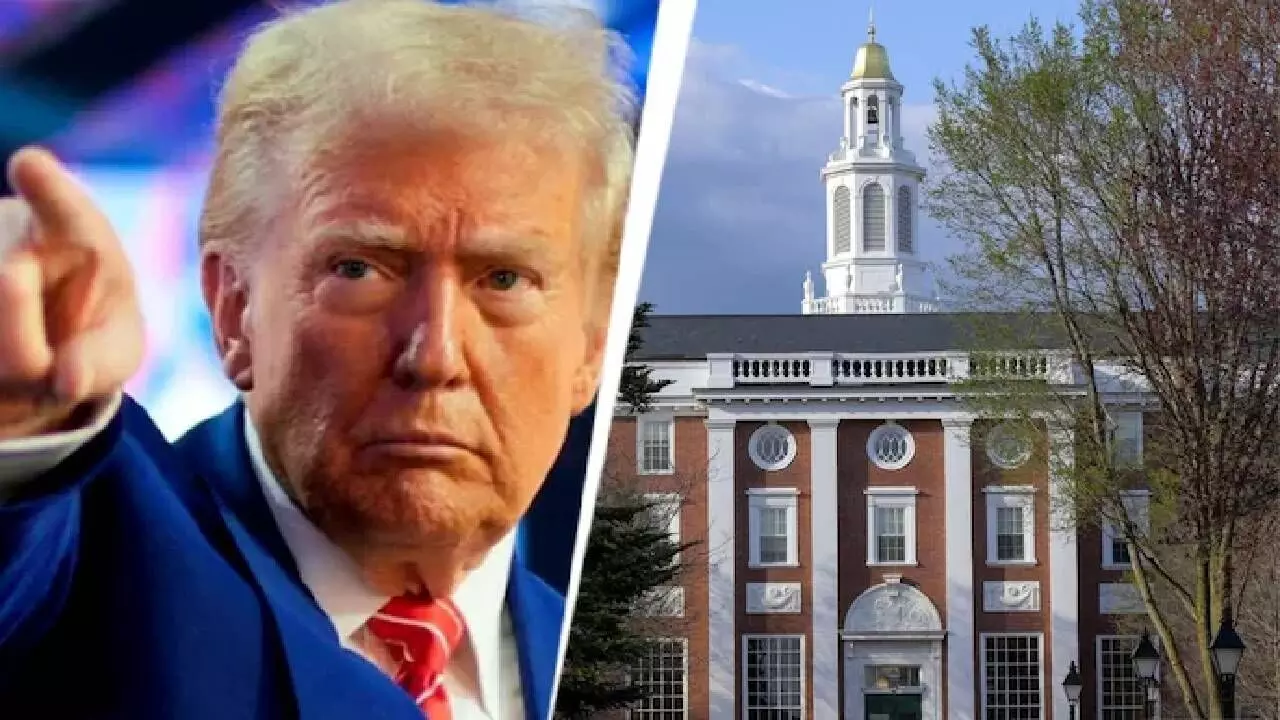Harvard vs Trump: International Student Ban Triggers Legal Showdown and Global Backlash
Harvard University is in a legal battle with the Trump administration after being banned from enrolling international students. The move has triggered global backlash, funding freezes, and concerns over academic freedom and U.S. soft power.
Harvard vs Trump: International Student Ban Triggers Legal Showdown and Global Backlash

Harvard clashes with Trump administration over student visa ban, citing threats to academic freedom and U.S. global standing.
Harvard University has found itself at the epicenter of a growing legal and political storm after the U.S. Department of Homeland Security (DHS) revoked its right to admit international students. Citing national security concerns, the DHS’s move has not only prompted an immediate lawsuit from the Ivy League institution but also triggered diplomatic tensions and concerns about the long-term impact on American higher education.
Homeland Security Cites National Security
On May 23, DHS Secretary Kristi Noem announced the decision to block Harvard from enrolling foreign nationals. The department alleged national security risks, insufficient cooperation in visa-related investigations, and rising ideological extremism on campus.
The decision has put the academic future of nearly 6,800 international students — about 25% of Harvard’s total enrollment — in jeopardy. Several academic departments, research programs, and athletic teams face potential disruption. In response, Harvard filed a federal lawsuit, calling the move “arbitrary, capricious, unlawful, and unconstitutional.”
A federal judge temporarily blocked the DHS order the following day, providing short-term relief while legal proceedings continue.
Trump Criticizes Foreign Student Presence
Former President Donald Trump intensified the conflict by openly criticizing Harvard’s large international student population. In a Truth Social post, Trump questioned, “Why are nearly a third of Harvard students from foreign lands?” and demanded to know “who those foreign students are,” suggesting that taxpayers deserve transparency due to the university’s receipt of federal funds.
Funding Freeze and Allegations of Retaliation
The Trump administration responded by freezing $2.2 billion in federal research grants and $60 million in existing government contracts. An additional $9 billion in funding remains under review. Harvard claims the measures are retaliatory — a political punishment for the university’s liberal reputation and commitment to academic freedom.
“These measures are not only punitive,” Harvard argued in its lawsuit, “they threaten the very foundation of American higher education.”
Global Repercussions
The ban has drawn strong international condemnation. China, which sends a substantial number of students to Harvard, warned that politicizing education would harm the U.S.'s global standing. Even Belgian royalty is affected — Princess Elisabeth, currently pursuing graduate studies at Harvard, is among those awaiting clarity on their status.
U.S. Senator Jeanne Shaheen condemned the decision, saying it “does lasting damage,” while former Harvard President Larry Summers described it as “the most serious attack in the university’s history.”
Crackdown on Campus Activism
The controversy is part of a broader campaign by the Trump administration targeting elite academic institutions. The White House has threatened to deport foreign students involved in pro-Palestine protests and is moving to dismantle diversity, equity, and inclusion (DEI) programs. Critics argue the administration is framing Harvard as a hotbed of leftist ideology.
Broader Impact on U.S. Education
Experts say the issue extends far beyond Harvard’s gates. “This isn’t just about one university — it’s about America’s academic credibility,” said Mike Henniger, CEO of Illume Student Advisory Services. The developments have sparked anxiety across global education systems, with many students and governments now questioning the reliability of U.S. institutions. As one student from a state university put it: “If Harvard is targeted, are we next?”

